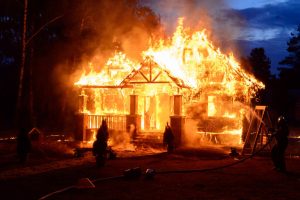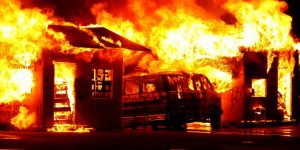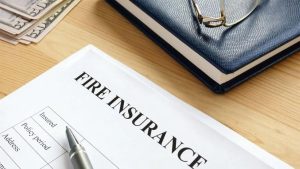Introduction to Fire Insurance
Fire insurance is a vital safeguard that offers financial protection for unexpected fire-related damages to your property. Property fires can be devastating, often resulting in significant monetary loss and emotional strain. Fire insurance steps in to alleviate this burden by covering repair or replacement costs, ensuring that individuals and businesses have the means to rebuild after such a catastrophic event. Although it may seem like an extra expense, fire insurance provides peace of mind and tangible security against one of the most common property hazards.
Understanding the Basics of Fire Insurance Coverage
Fire insurance policies are designed to cover a wide range of losses caused directly or indirectly by fire. This includes damage to your home, office, or other properties, as well as personal belongings. Policies often provide financial compensation for the cost of repairs, rebuilding structures, or replacing damaged items. Additionally, some fire insurance plans extend their coverage to include damages from related events such as smoke, explosions, and water used to extinguish the fire. However, typical exclusions in fire insurance policies might be damages due to intentional fires, war-like situations, arson by the property owner, or electrical short circuits caused by negligence. Understanding policy coverage and limitations is critical when choosing a plan that fits your needs.
Key Factors Influencing Fire Insurance Premiums
Several factors play a role in determining the premium you pay for fire insurance. The property’s location often significantly impacts pricing, as properties in fire-prone areas command higher premiums. The type of material used in construction—flammable or fire-resistant—also matters, with fire-resistant constructions being less expensive to insure. Other factors include the age of the property, the property’s occupancy type (residential or commercial), and any existing safety measures such as sprinklers and fire alarms. Insurers may also look at your claims history. Properties with fewer claims are considered less risky and may secure lower premiums. Understanding these influencing factors allows you to make informed decisions while preparing for expenses related to fire insurance.
How to Assess Your Fire Insurance Needs
Determining the amount of fire insurance you need involves evaluating various aspects of your property and personal circumstances. Start by assessing the property’s value and construction costs. Consider not only the current market value but also potential rebuilding expenses in case of a total loss. Take an inventory of the belongings within the property, listing essential and high-value items for which you’d want coverage. Additionally, think about secondary costs, such as temporary relocation expenses in case your property becomes uninhabitable. Working with a professional appraiser or insurance advisor can help provide an accurate assessment, ensuring that you’re neither underinsured nor overpaying for unnecessary coverage.
Navigating the Claims Process
If you experience a fire-related loss, filing a claim with your insurer is the first step toward compensation. It is essential to notify your insurance company promptly and provide them with all necessary documentation, including photographs, proof of ownership, and receipts for damaged items. Assessors sent by the insurance company will evaluate the extent of the damage to determine the compensation amount. Understanding your policy’s terms and conditions can help you navigate the process smoothly. Be diligent about following the insurer’s instructions and timelines to avoid unnecessary delays or disputes. Transparency and thoroughness in the claims process are key to receiving timely and fair compensation.
Tips for Preventing Fires and Reducing Risks
While fire insurance provides financial safety, proactive prevention measures can better protect your property and loved ones. Installing fire alarms and smoke detectors in critical areas of your home or workplace is an effective way to catch fires early. Regular maintenance of electrical wiring and appliances is essential to prevent short circuits, a common cause of accidental fires. Keep fire extinguishers readily accessible and ensure family members or employees are trained in using them. Limiting the use of flammable materials, avoiding the overloading of electrical circuits, and practicing safe cooking habits can further reduce fire risks. Prevention is always better than cure—a vigilant approach can lower both risks and, in some cases, insurance premium costs.
Protecting Your Property with Fire Insurance
Fire insurance is more than just an expense—it’s an investment in safeguarding your future. With comprehensive fire insurance in place, you can face the unforeseen with confidence, knowing that your financial stability is protected. Beyond financial security, fire insurance grants peace of mind, allowing you to focus on recovery after a disaster rather than worrying about the mechanics of rebuilding. By carefully assessing your needs, selecting the right policy, and taking steps to prevent fires, you can ensure that your property and belongings remain secure. To maximize the benefits of fire insurance, it’s crucial to remain proactive, staying informed about your policy and updating coverage as needed.
FAQ
1. What types of properties can be covered under fire insurance?
Fire insurance can cover residential homes, commercial properties, offices, factories, and even warehouses. Coverage specifics vary by policy and insurer.
2. What should I look for when choosing a fire insurance policy?
Focus on policy coverage, exclusions, premium costs, claim settlement process, and the reputation of the insurer. Additionally, check if the policy includes extended coverage for related damages like explosions or water damage.
3. Is fire insurance mandatory for every property owner?
No, fire insurance is not legally required in most regions, but it is highly recommended for both residential and business property owners to safeguard their assets.
4. Can I update my fire insurance policy over time?
Yes, you can and should update your policy as the value of your property or belongings changes. Inform your insurer about any renovations or additions to ensure adequate coverage.
5. Does fire insurance cover natural disasters?
Standard fire insurance may exclude natural disasters such as earthquakes or floods. However, some insurers offer additional riders or policies to include coverage for these events.
6. How quickly can I file a claim after a fire incident?
You should file a claim as soon as possible, ideally within 24-48 hours after the incident, to ensure smooth processing and prompt compensation.
7. Are discount options available for fire insurance?
Some insurers offer discounts if your property has safety measures installed, like smoke detectors or fire-resistant construction materials. Additionally, bundling fire insurance with other policies can sometimes reduce costs.




